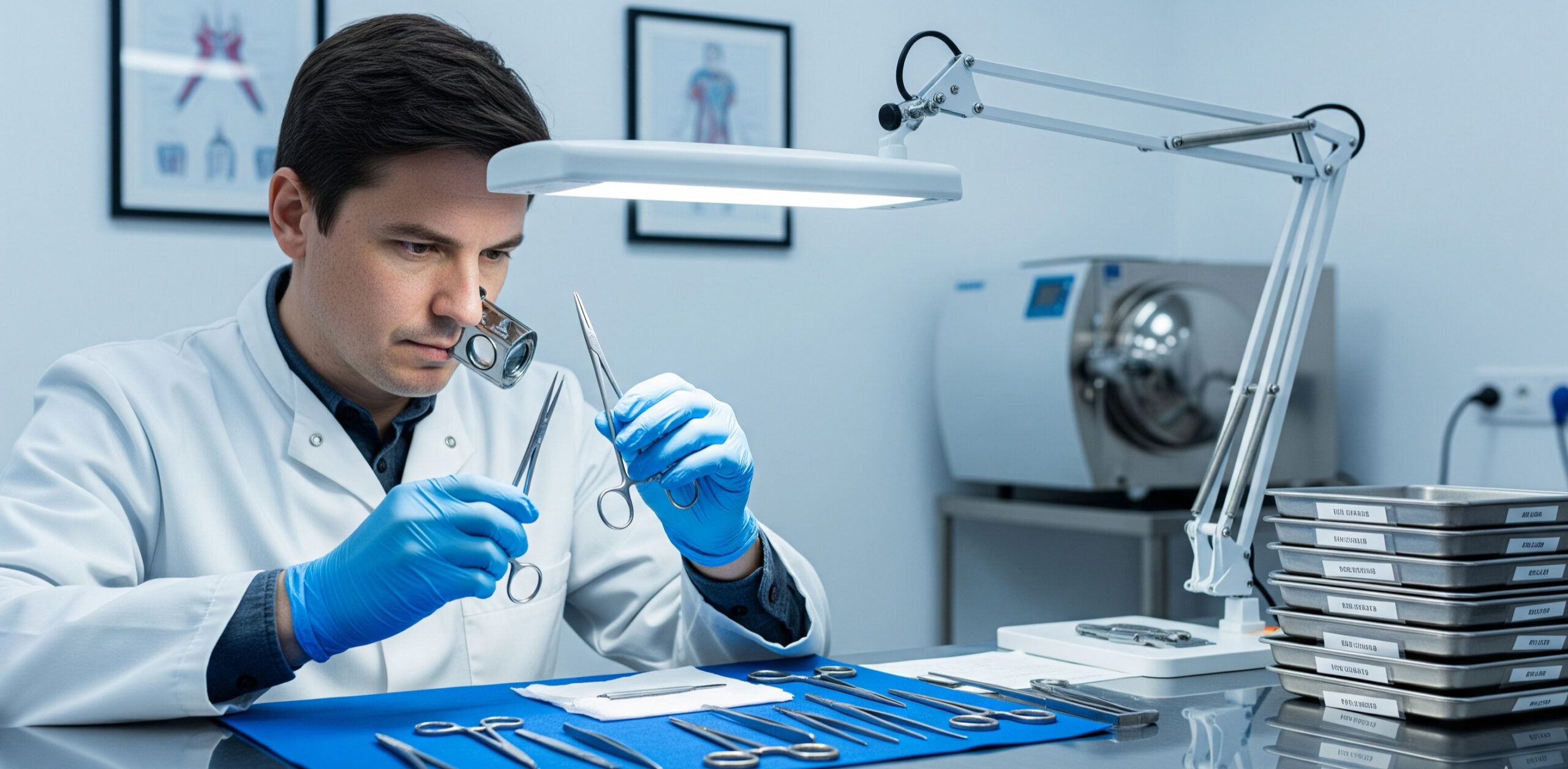Introduction
In the world of healthcare, the success of surgeries depends not only on skilled surgeons but also on the quality and condition of the instruments they use. Surgical tools are highly delicate and must perform with absolute precision. Even the smallest defect in a scalpel, forceps, or powered drill can compromise patient safety and surgical outcomes.
That is where a surgical instrument service company plays a critical role. These companies specialize in maintaining, repairing, and restoring surgical tools to ensure they remain sharp, sterile, and reliable. Without them, hospitals, clinics, and surgical centers would face higher costs, instrument downtime, and greater risk of errors.
This article provides an in-depth look at what a surgical instrument service company does, the services they offer, their importance in modern healthcare, and how to choose the right one for your medical facility.
What is a Surgical Instrument Service Company?
A surgical instrument service company is a professional organization dedicated to the care, repair, and maintenance of surgical tools. Their main responsibilities include:
- Inspecting instruments for damage or wear
- Sharpening and aligning cutting tools
- Replacing worn-out components
- Polishing and refurbishing surfaces
- Sterilization support and guidance
- Extending the lifespan of instruments
These companies work closely with hospitals, dental clinics, veterinary centers, and surgical equipment suppliers to keep instruments in optimal condition.
Why Surgical Instrument Services Are Essential
Surgical instruments represent a significant investment for healthcare facilities. A single set of instruments can cost thousands of dollars, and powered devices are even more expensive. By using a surgical instrument service company, hospitals and clinics benefit in several ways:
- Patient Safety – Well-maintained instruments reduce surgical risks.
- Cost Savings – Regular servicing prevents expensive replacements.
- Efficiency – Sharp, properly aligned instruments shorten surgery times.
- Compliance – Service companies ensure tools meet regulatory standards.
- Extended Lifespan – Professional care extends the life of costly instruments.
Core Services Provided by Surgical Instrument Service Companies
1. Inspection & Assessment
- Detailed evaluation of instruments for cracks, bends, and misalignments.
- Identification of instruments that require repair versus replacement.
2. Sharpening & Alignment
- Scalpels, scissors, and bone cutters are sharpened to ensure clean cuts.
- Alignment ensures precision and prevents tissue damage.
3. Repairs & Replacements
- Fixing loose joints, damaged handles, or broken tips.
- Replacement of missing screws, pins, and springs.
4. Refurbishing & Polishing
- Restoring dull or scratched instruments to like-new condition.
- Removing corrosion and stains to maintain cleanliness.
5. Sterilization Support
- Advising healthcare facilities on proper sterilization methods.
- Ensuring instruments remain corrosion-resistant.
6. Preventive Maintenance Programs
- Scheduled servicing to avoid sudden failures.
- Inventory tracking and rotation support for large hospitals.
7. On-Site & Off-Site Services
- Mobile service units provide on-site sharpening and repairs.
- More complex refurbishments are carried out at the company’s workshop.
Types of Surgical Instruments Serviced
A surgical instrument service company typically handles:
- General Surgery Instruments: Scalpels, scissors, clamps, forceps.
- Orthopedic Tools: Bone saws, drills, and reamers.
- Dental Instruments: Extraction forceps, elevators, scalers.
- Endoscopic Instruments: Laparoscopic tools and trocars.
- Microsurgical Tools: Ophthalmic and neurosurgery devices.
- Powered Surgical Instruments: Pneumatic, electric, and battery-driven devices.
By covering such a wide range, these companies ensure comprehensive support for all surgical specialties.
Benefits of Partnering with a Surgical Instrument Service Company
- Reliability: Instruments perform as intended during surgery.
- Cost-Effective: Repairs and refurbishing are cheaper than replacements.
- Compliance with Standards: Services ensure compliance with FDA, ISO, and healthcare regulations.
- Convenience: On-site mobile units reduce downtime.
- Inventory Protection: Extends the life cycle of expensive surgical sets.
How to Choose the Right Surgical Instrument Service Company
When selecting a service provider, healthcare facilities should consider:
- Experience & Reputation: Established companies with proven expertise.
- Certifications: ISO-certified and compliant with healthcare standards.
- Range of Services: Ability to handle both simple tools and complex powered instruments.
- On-Site Support: Availability of mobile repair units.
- Turnaround Time: Quick repairs to minimize downtime.
- Cost Transparency: Clear pricing and service agreements.
- Customer Support: Reliable communication and ongoing assistance.
The Role of Technology in Instrument Servicing
Modern surgical instrument service companies use advanced technologies to deliver better results:
- Laser Sharpening Systems – For precise edge restoration.
- Ultrasonic Cleaners – For removing microscopic debris.
- Computerized Tracking Systems – For monitoring instrument life cycles.
- 3D Imaging & Microscopy – For identifying micro-cracks and wear.
These innovations help maintain instruments at the highest possible standards.
Common Challenges in Surgical Instrument Servicing
- High Volume of Instruments: Large hospitals require constant servicing.
- Complex Designs: Laparoscopic and robotic instruments are harder to repair.
- Cost of Powered Instruments: Specialized repairs can be expensive.
- Turnaround Pressure: Hospitals need instruments back quickly to avoid delays.
Reliable companies manage these challenges by maintaining skilled staff, advanced facilities, and efficient logistics.
The Future of Surgical Instrument Service Companies
The future of surgical instrument servicing looks promising, with key developments including:
- AI-Driven Maintenance: Predicting when instruments need servicing.
- Smart Instruments: Built-in sensors to monitor wear and sterilization cycles.
- Eco-Friendly Practices: Recycling damaged tools to reduce medical waste.
- Integration with Robotics: Servicing robotic-assisted surgical tools.
As healthcare continues to evolve, service companies will remain vital to ensure surgical precision and patient safety.
Conclusion
A surgical instrument service company is more than just a repair provider—it is a critical partner in healthcare. By ensuring instruments are sharp, sterile, and reliable, these companies directly contribute to patient safety and surgical success.
For hospitals, clinics, and dental practices, partnering with a trusted service company means reduced costs, improved efficiency, and peace of mind knowing that every instrument is ready for use.
At Professional Enterprises, we not only manufacture high-quality surgical and dental instruments but also emphasize the importance of proper servicing and maintenance to extend their lifespan.

